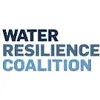
Water Resilience Coalition
🇺🇸 United States
Unclaimed Profile
This Company Profile has not yet been claimed. To claim the profile, please click here.
Some Numbers About Water Resilience Coalition
About (Water Resilience Coalition)
The Water Resilience Coalition is a global initiative that aims to address the water crisis and its impact on people, businesses, and the environment. It is led by CEOs of some of the world's largest and most influential companies, who are committed to taking collective action and setting ambitious goals to preserve and improve the world's freshwater resources.
The Water Resilience Coalition was launched in 2020 as an initiative of the CEO Water Mandate, a partnership between the UN Global Compact and the Pacific Institute. The CEO Water Mandate is a platform for business leaders to advance water stewardship, sanitation, and the Sustainable Development Goals. The Water Resilience Coalition builds on the Mandate's principles and framework, but goes beyond by focusing on water-stressed basins and net positive water impact.
The Water Resilience Coalition has a 2030 ambition to achieve positive water impact in over 100 water-stressed basins that support over 3 billion people, and to enable equitable and resilient water access, sanitation, and hygiene (WASH) for over 300 million people. To achieve this ambition, the Coalition has a 2030 roadmap that outlines four approaches: scaling proven solutions, advancing innovation, leveraging finance, and measuring impact.
The Water Resilience Coalition also has a 2050 pledge to achieve net positive water impact in 150 water-stressed basins worldwide, to develop and implement strategies for water-resilient value chains, and to raise the global ambition on water. The pledge is based on the recognition that water is essential for life, health, dignity, prosperity, and ecosystem integrity, and that water stress poses a significant risk to business operations, supply chains, communities, and the planet.
The Water Resilience Coalition currently has 21 member companies from various sectors and regions, such as Ecolab, Gap Inc., Cargill, Microsoft, PepsiCo, Diageo, AB InBev, Nestlé, and Unilever. These companies have made a commitment to align their water targets with science-based thresholds, to implement context-based water stewardship plans in priority basins, to collaborate with other stakeholders to scale impact, to report on their progress and challenges transparently, and to advocate for water resilience within their spheres of influence.
The Water Resilience Coalition works with partners and advisors from civil society, academia, government, and multilateral organizations to ensure its actions are informed by the best available science and practice. Some of the partners include Water.org, WaterAid, World Resources Institute (WRI), World Wildlife Fund (WWF), Alliance for Water Stewardship (AWS), CDP (formerly Carbon Disclosure Project), International Water Management Institute (IWMI), Stockholm International Water Institute (SIWI), The Nature Conservancy (TNC), World Economic Forum (WEF), and World Bank Group.
The Water Resilience Coalition is an example of how business can play a leading role in addressing one of the most urgent challenges of our time. By working together across sectors and geographies, the Coalition hopes to create a more water-secure future for all.